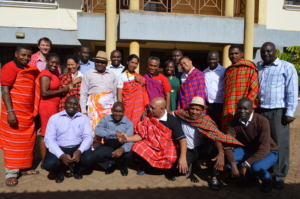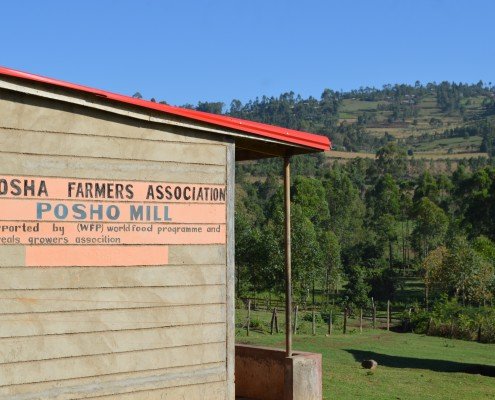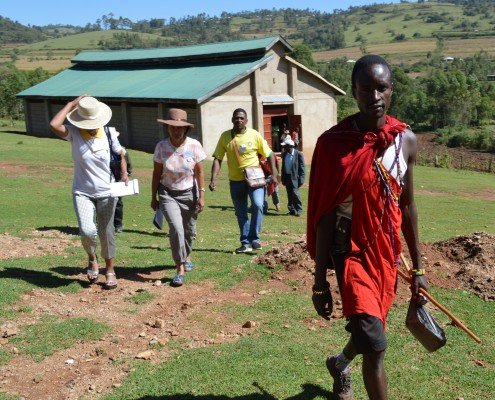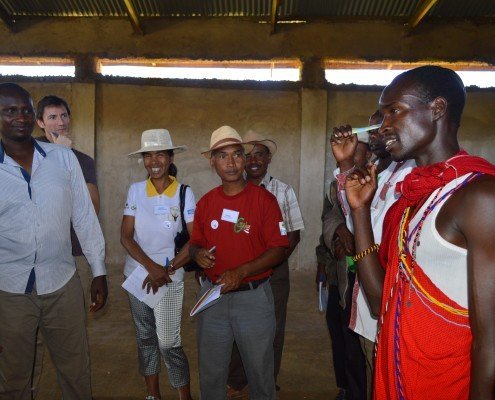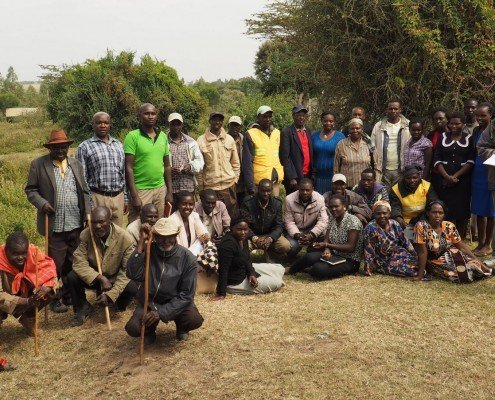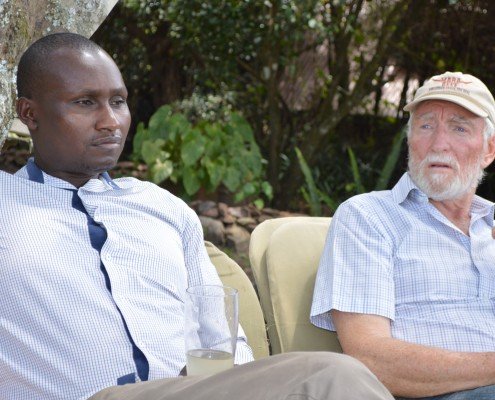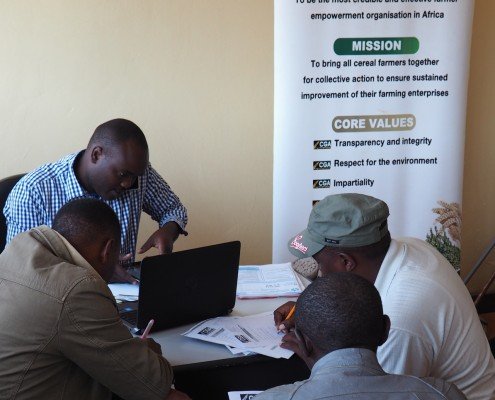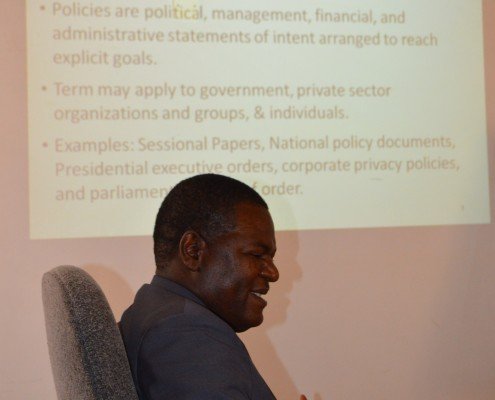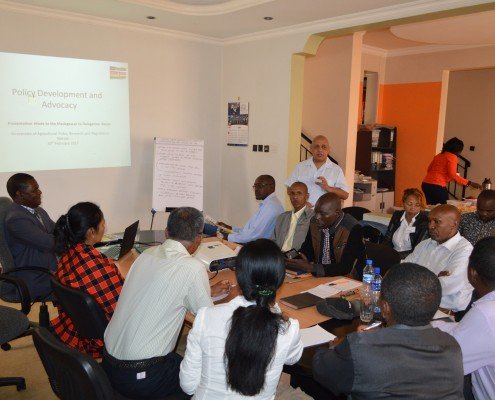It was in the impetus of the TransFert dynamic in sub-Saharan Africa that 8 representatives of the Malagasy Confederation Fifata, accompanied by Fert, traveled to Kenya from 6 to 10 February 2017 for a study tour under the banner ‘Lobbying of farmer’organizations. CGA (Cereal growers association) also accompanied by Fert, was their host in this immersion in the heart of the Kenyan farmer organization
This is not so common, that a delegation of elected representatives and technicians from agricultural organizations in sub-Saharan Africa meet and deepen on a common issue.
Thanks to the dynamics and meetings allowed by TransFert, a Malagasy delegation of producers and technicians from Fifata visited Kenya to meet CGA, a national organization also, whose initial strength was responsiveness to current events, concerning the future of national agricultural production and the income of its producers. The program had been designed in the light of the expectations of each other. From the field action, to the consolidation of messages and lobbying actions at the national level, Malagasy visitors were able to appreciate the scope of CGA.
The visit of the Meguarra cooperative made it possible to evoke the context of creation, but also the importance of the storage service toward state decision-makers and other commercial partners. Discussion with two local leaders but also with public interlocutors, such as NCPB (national body in charge of the management of the national food security stocks), confirmed that the cooperative could, for example, negotiate with the State Construction of a road to Meguarra.
But even more so, the encounter between farmer leaders has once again been a source of instruction and admiration for all. CGA’s former president, Hugo Wood, was inspiring and particularly noteworthy to all members of the delegation, but also to the accompanying members of the CGA team. By bringing together the history of the CGA and its evolution over time, Malagasy leaders have been able to measure the progress made in terms of recognition and legitimacy to the public authorities towards this producer organization.
Visits and meetings of actors in the field with the national actors, which were considered relevant by the whole delegation and which helped feed the exchanges of return to the headquarters of CGA in Nairobi.
At the time of the synthesis and the balance sheets, Malagasy and Kenyans were able to note that while CGA was illustrated by its strong mobilization capacity in its lobbying actions, Fifata representatives were able to mention their advances in training Leaders in Madagascar. The mobilization and persuasion force, based mainly on leaders who carry the message, the Kenyan and Malagasy interlocutors jointly affirmed the importance of training FO representatives.
Over the years, CGA has matured in its action and its impact on lobbying. It was able to share with Fifata what it sees as key factors in ensuring successful lobbying:
- Trust in its power: producers represent a large portion of the population, they produce to feed the country; thus, they have a power of speech and action,
- Ensure broad mobilization, building alliances as soon as possible to weigh and be heard. In the first place, having a very broad membership base,
- Having good, well-trained, charismatic and good speakers, able to speak to high-level interlocutors,
- To rely on efficient technical teams with a good technico-economic level,
- Having solid resources: lobbying is expensive, so you have to be able to mobilize financial resources,
- Be organized to push, sensitize and convince at all useful levels (MPs, centralized or decentralized administrations, public opinion if necessary, until the Minister or the President depending on the subjects),
- Being audible by hammering all one message, clear and firm on the bottom, while adapting it to one’s audience,
- To base one’s message, one’s position, on objective case studies (academic work …).

